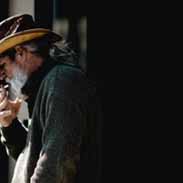Chapter 19 World History – Flashcards
Unlock all answers in this set
Unlock answersquestion
plebiscite
answer
a popular vote that made Louis-Napoleon president
question
Capital
answer
Britians ready supply of money
question
Cottage industry
answer
a production method in which tasks are don by individuals in their homes
question
entrepreneurs
answer
Very wealthy people that are interested in finding new business opportunity and new ways to make profits
question
James Hargreaves
answer
the inventor of the spinning wheel
question
Edmund Cartwright
answer
water-powered loom
question
James Watt
answer
Steam engine
question
puddling
answer
the process where coke derived from coal is used to burn away impurities in crude iron to produce high quality iron
question
Robert Fulton
answer
built first paddle wheel steamboat
question
industrial capitalism
answer
economic system based that produced a new middle-class group called the industrial working class
question
Socialism
answer
system where society owns and controls some means of production (factories)
question
Robert Owen
answer
British cotton manufacture who believed humans would show their good if they lived in a cop orate environment
question
Klemens von Matternich
answer
leader of the Congress of Vienna (Austria)
question
principle of legitamacy
answer
principle that meant that lawful monarchs from the royal families, before Napoleon, would be restored to their positions of power
question
conservantism
answer
Obedience to political authority, emphasizes on organized religion to maintain social order, and resistance to the ideas of individual rights and representative government.
question
Princple of Intervention
answer
great powers had the right to send armies into countries with revolution in order to restore legitimate monarchs
question
Liberalism
answer
a political philosophy originally based largely on Enlightenment principles, holding that people should be as free as possible from government restraint and that civil liberties-the basic rights
question
Nationalism
answer
the unique cultural identity of a people based on common language, religion, and national symbols; more powerful than liberalism
question
Universal Male Suffrage
answer
all afult men could vote
question
Louis-Napoleon
answer
nephew of Napoleon Bonaparte; new president of the Second Republic
question
German Confederation
answer
38 independent German states recognized by the Congress of Vienna. Austria & Prussia were the two great powers
question
Multinational State
answer
a collection of different peoples including Germans, Czechs, Magyars, Slovaks, Romanians, Slovenes, Poles, Croats, Serbians, & Italians Hapsburg emperor was the common blood
question
Crimean War
answer
resulted after the stubble of Russian & Ottomans. 1853 Russia invaded Moldavia & Ottomans declared war. (so did France & Great Britian) (Point:to destroy the Concert of Europe)
question
Giuseppe Garibaldi
answer
the Italian leader gf the Red Shirts who went to invade the Two Sicilies
question
Militarism
answer
the reliance on military strength
question
Otto von Bismarck
answer
new prime minister that was seen as the foremost practitioner of "realpolitik". Went against the legislature & collected taxes & improved the army.
question
Kaiser
answer
Emperor (the first to proclaim this title was William I of Prussia)
question
Queen Victoria
answer
Queen of Great Britian who's reign was the longest. Sense of duty and morality reflected on the Victorian Age
question
Compromise of 1867
answer
compromise between Austria and Hungary that unified them under one monarch but each had their own constitution, legislation, government, bureaucracy, and capital
question
Czar Alexander
answer
czar of Russia who issued the emancipation edict, freeing the serfs. His ways didn't work so he was assassinated by radicals
question
Emancipation
answer
the act of setting free
question
Abolitionism
answer
a movement that ended slavery
question
secede
answer
withdraw
question
British North America Act
answer
a bill passed by Parliament in 1867 that established a Canadian nation (Dominion of Canada) with its own constitution
question
Romanticism
answer
an intellectual movement that emerged at the end of the 18th century in reaction to the ideas of the Enlightenment; stressed feelings, emotions, and imaginations as sources of knowing
question
Ludwig von Beethoven
answer
greatest music composer of all time
question
Louis Pasteur
answer
the Frenchman who proposed the germ theory of disease
question
Mendeleev
answer
he chemist who classified all the material elements then known on the basis of their atomic weights
question
Faraday
answer
the Englishman who put together a primitive generator that laid the foundation for the use of electric current
question
secularization
answer
indifference or rejection of religion
question
Darwin
answer
the scientist who published "On the Origin of Species by Means of Natural Selection"; principle of organic evolution and natural selection
question
natural selection
answer
the principle set forth by Darwin that some organisms are more adaptable to the environment than others; "survival of the fittest"
question
realism
answer
mid-19th century movement that rejected romanticism and sought to portray lower- and middle- class life as it actually was; Charles Dickens and Gustave Courbet



